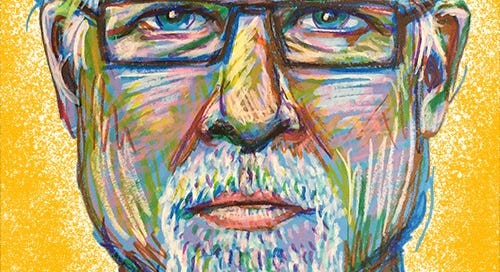What follows is an excerpt from Episode 79 of Tangentially Speaking (or so I’m told). On the subReddit dedicated to the podcast, someone asked other listeners if they remembered an episode where I’d spoken about how time is a measure of novelty, so increasing novelty was a way to slow time. A listener who calls him/herself TheHipcrimeVocab (who appeared on this episode of my podcast, and writes on Substack here) provided this transcript. I can’t vouch for how accurate it is. I’m just pasting what I found on Reddit. But it sounds like me, and these are things I’ve thought about for a while.
"I was thinking about, like, how it...journeys seem to take longer when you're not sure where you're going. The journey back always seems so much shorter. When you know where you’re going, then you’re not focused on the uncertainty of it. You’re not wondering where it is; you’re not wondering how much further it’s going to be. You know how much further it going to be, and so you don’t think about it and it ends up taking much less time. Seemingly. Subjective time."
"And then I was applying that to life, and the travel years, and the years now where I'm doing the same thing every day. I've talked about that before—how this idea that when there's a lot of variety and surprise and unexpected elements in your life, that life seems to take longer, it seems to last longer because time really is a measure of change. And so if there's nothing really changing in any tangible way in your life, it sort of seems like time stops in a way. But you're still aging; you're just not feeling it the same, you know."
Keep reading with a 7-day free trial
Subscribe to Tangentially Speaking with Chris Ryan to keep reading this post and get 7 days of free access to the full post archives.



